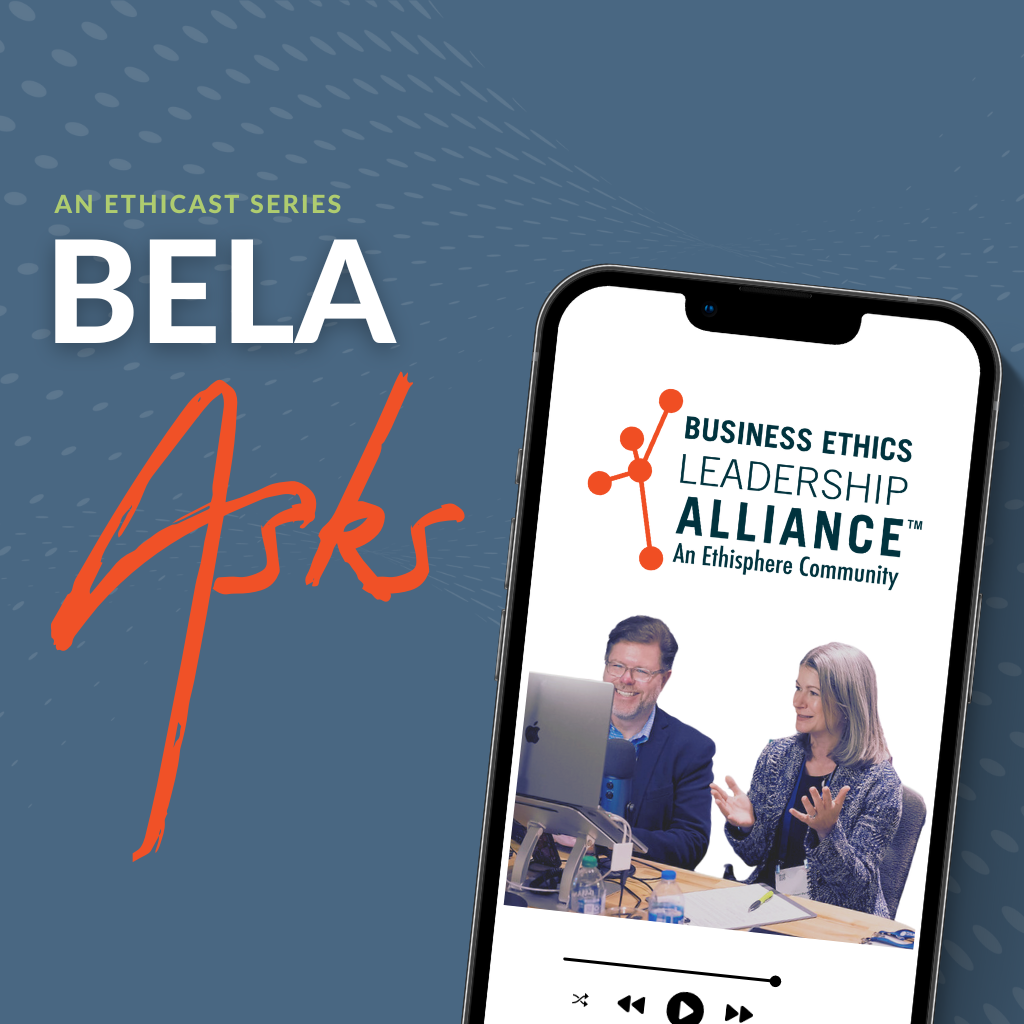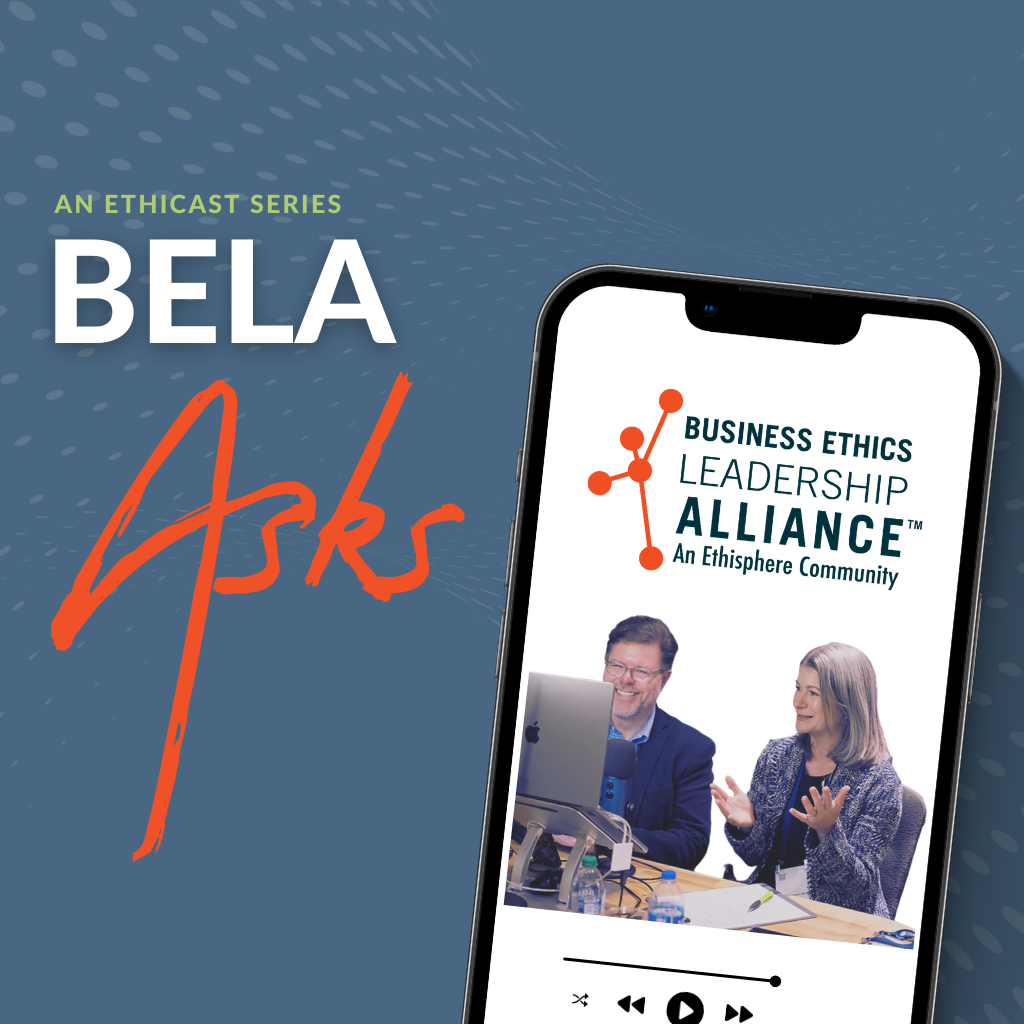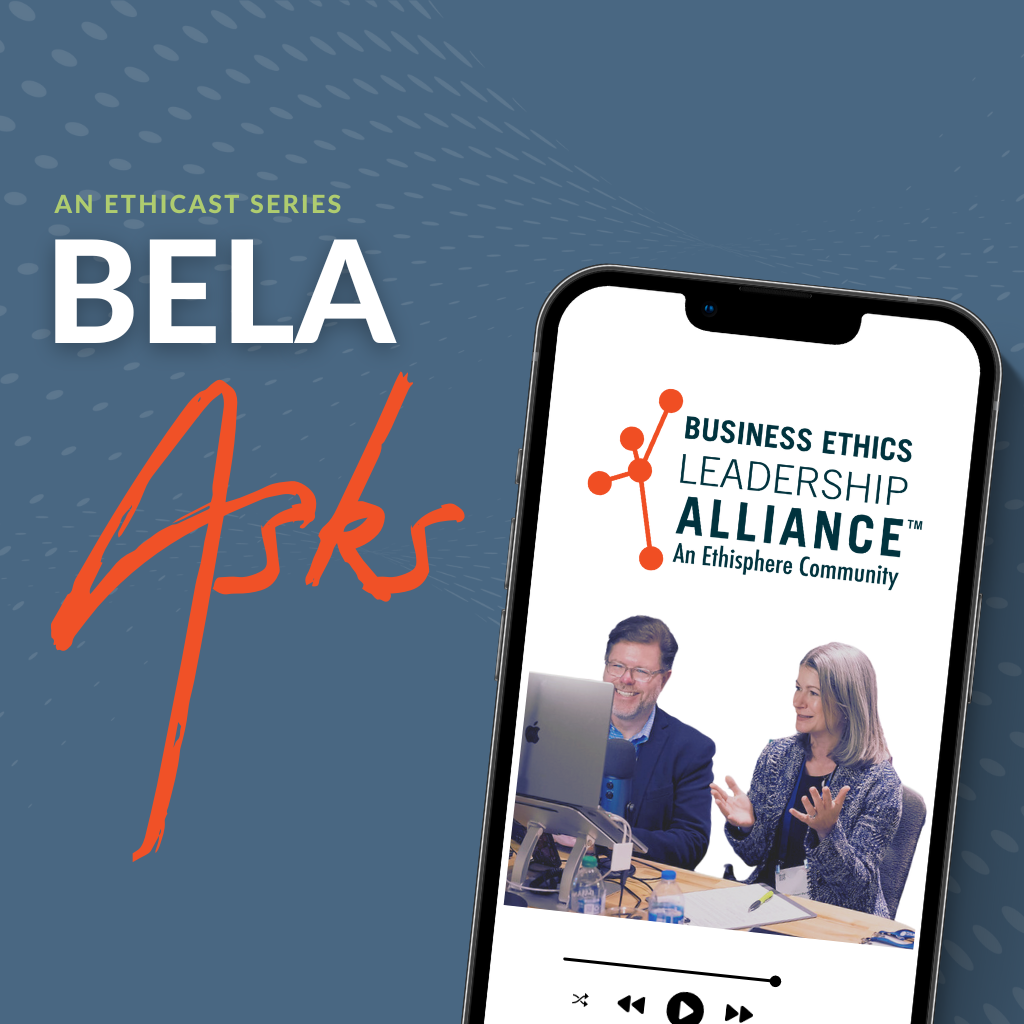[00:00:01] Speaker A: Hi, everyone. The Business Ethics Leadership alliance has questions and we have answers. I'm your host, Bill Coffin. Welcome to another BELLA Asks episode of the Ethicast.
The Business Ethics Leadership alliance, or bela, is a global ethics and compliance community that provides exclusive access to helpful data, program benchmarking, roundtable events, and a resource library with hundreds of policy guidance documents, member contributed program examples and more. But one of the most popular aspects of BELLA membership is our concierge service in which members can submit any question at all regarding ethics and compliance, and our internal experts will provide an answer and helpful resources with further information. And while we invite everyone watching and listening to join bella, we also know that there's no competition in compliance, which is why we're using this program to thematically respond to high level questions from the BELLA community for the benefit of ENC teams everywhere.
And joining us once again to answer those questions is BELLA chair Erica Salmon Byrne. Erica, it is so good to see you again. Thank you for joining the program.
[00:01:19] Speaker B: Absolutely, Bill, it is my delight to be here. And let me say Happy New Year, because this will be one of our first Bella Asks of 2025.
[00:01:26] Speaker A: Absolutely, absolutely. And we're kicking off the year with a fantastic question. Our next question is a culture question, my favorite kind. And it is Culture was the most frequently accessed topic in the BELLA member hub in 2024. Why do you think that is? And what resources would you recommend to those who want to learn more?
[00:01:44] Speaker B: Yeah, Bill, it's a great question. And you know, I think one of the fun things that we get to do at the beginning of the, of the year is in episodes like this is look back over the course of 2024, obviously a lot happened in the ethics and compliance community. A lot happened with the organizations that we support. And so it's fun to, to just take a quick beat and think about some of those trends before we move into the work of 2025. And my prediction now, my hot take, if you will, in January, is we're going to continue to see culture being one of the most frequently accessed resources on the BELLA member hub. And that's for two really important reasons. The first is your culture. And supporting your culture is a key piece of what we call, to use Professor Linda Trevino's structure here at Ethisphere. We call it informal systems. Right. So your formal systems. And Bill, longtime listeners of the Ethicast have heard you and I talk about this formal systems and formal systems dichotomy in the past. But your formal systems are the things we spend A lot as compliance professionals of our time focused on it's your code, it's your training, it's your policies, it's your risk assessment, right? It's those pieces, the scaffolding, if you will, of the program that you have built inside of your organization. Your informal systems, though, are the things that are actually going to make that engine go. So it is your culture, it is the stories you tell, it is the norms you set, it is the example that your leaders give, it's the way your managers manage their teams. And if you aren't measuring that culture, you don't really have a sense of whether you have a marriage between your formal systems and your informal systems, or you have a gap between your formal systems and your informal systems. And when you have a gap between the two, what you end up with is you end up with a formal system that falls over because you're informal systems. It's the ecosystem we're all swimming in and it's so much more impactful on the choices we make on a day to day basis than formal systems. So measuring your culture, understanding what you're dealing with is a really key piece of the work in terms of supporting those informal systems. And then the second key reason that I think it was such a topic of conversation over the course of 2024 is, is reflected in the DOJ's guidance that came out in September where they changed the question of do you measure your culture of compliance to how and how often do you measure your culture of compliance? And that regulatory shift, I think really is tied back to this recognition that at the end of the day your informal systems are going to be the thing that either undermines or supports the scaffolding of your formal program.
[00:04:09] Speaker A: Do you mind if I ask you a follow up question, Bill?
[00:04:12] Speaker B: Longtime listeners of the Ethicast know I never mind a follow up question.
[00:04:17] Speaker A: Well, as we go into 2025, one can detect a certain tension between, you know, looking to organizations like, especially companies as one of the last big bastions of institutions that you can trust as people kind of lose faith in large institutions in general.
How much of a, of a differentiator and a value builder is culture? When you talk about all these things, about making your workplace a place where people feel psychological safety, where they come to feel safe, where they come to really give their full selves and innovate. You know, we talk about culture all the time. A lot of people who are perhaps new to this conversation sometimes look at culture sort of an amorphous, you know, kind of philosophical Philosophical concept, but really, how tangible is culture when we talk about all these things as, as a, a lever to move?
[00:05:03] Speaker B: I think it's an incredibly tangible lever to move, Bill. And the work really comes in, you know, first, obviously, you need to measure it so you can understand where your holes are and where your weaknesses are and where your strengths are. Right. That's one of the things that anytime I'm talking to a company that is working on measuring their culture, I always remind that compliance team, don't overlook your strengths. Yes, you're using this to identify places where you need to do more work, but you should also be using it to identify places where or organically or because of some other manager or something. Something is happening in that part of the business that's working. And don't overlook the way in which your measurement efforts can show you the good stuff in addition to the bad stuff. So that's one key piece of it. You know, our own research that we've done looking at the financial performance of companies whose culture measurement is really strong, or culture measures rather are really strong, shows that you see a 40% higher return on assets. That is a, that is a very statistically significant financial benefit of having a strong culture. And my, you know, sort of parsing of the, the underpinning research on that one is very similar to the way that I talk about our ethics premium, which is, of course, the analysis we've done of the financial performance of the publicly traded companies that are honored as world's most ethical companies every year. And what I say about both of them is, I'm not saying we have causation, right? I'm not. I'm not saying that it is, you know, because of X that you get these results. What I'm saying is it's a really strong correlation. And what the correlation tells me is that when you have a team where people are comfortable raising their. You have a team where people are comfortable talking about product ideas. You have a team where people are talking about client challenges. You have a team where people are confident sharing their opinions. And those teams are more productive teams. Those teams are better performing teams. That's what our research shows. That's what the research on psychological safety shows. So it really behooves an organization to figure out where are those strengths. And then how do you take good managers from good to great and bad managers from bad to good? Because it will ultimately make everything else you're trying to achieve as an organization easier and smoother.
[00:07:09] Speaker A: Well, Erica, as always, we appreciate you so much for coming onto the program and to weighing in on these questions from the Bella community. Thank you so much again for joining us.
[00:07:17] Speaker B: Oh Bill, it is my pleasure. I am really looking forward to another year of terrific questions from the Bella community and an opportunity to come back and chat them too.
[00:07:25] Speaker A: To learn more about Bella, please Visit@the sphere.com Bella to request guest access to the member Resource Hub and to speak with the Bella Engagement Director. And if you have a question that you would like answered on this program, contact the Bella Concierge Service and we'll get to work on it for you. I'm Bill Coffin and this has been another Bella Asks episode of the Ethicast. If this is your first time listening, we hope you've enjoyed the show. For more content like this every week, please subscribe here on YouTube, Apple Podcasts or Spotify. You can also get our free weekly
[email protected] ethicast and we've got plenty more content for you here at YouTube.com ethisphere as well as at the ethisphere resource center at ethisphere.com resources thanks so much for joining us. And until next time, remember, strong ethics is good business.


